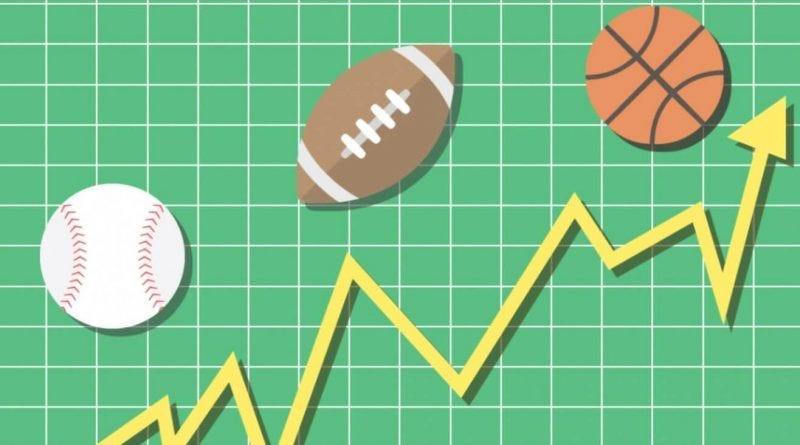What Is The Significance Of Head-To Head Records For Predicting The Outcome Of A Sporting Event?
Head-to head records can be an important element in predicting results of sports events, but their significance varies depending on several factors such as the sport being played as well as the teams or players involved, as well as the context of the game. Here’s a breakdown of why and how head-to-head records can be important:Psychological Edge:
Confidence and Morale Team members with a positive head-tohead record might be more confident, whereas their opponents might be less confident.
Intimidation Factor: A dominating head-to-head record can cause a psychological obstacle for the team that is losing.
Tactical Insights
Strategies for planning: Coaches or players can look back at the previous games and evaluate what worked well, or not so well. This may provide insight into the strategies that are effective.
Matchup Problems – Certain types of playing or specific matchups could favor some teams over others, which is essential to think about when planning.
Performance Patterns
Historical Trends: Consistent performances across a variety of matches could indicate a hidden advantage of one team over others.
Recordings that are specific to the conditions of play like tennis, head-tohead records may highlight differences in performance under certain conditions.
Relevance statistic:
Sample Size. The larger the sample size greater the reliability can be in predicting. A small sample size might not be enough to provide a statistically meaningful base for predicting.
Recent Form Comparing Recent Form. Dominance from the past. The relative importance of head-to-head records must be evaluated against the performance of recent times. A historically dominating team could be out of shape, which would reduce the significance.
Injury and Changes
Team changes: Due to injuries, transfers or retirements of the team, head-tohead statistics are affected.
Coaching Changes: New coaches may bring new tactics and a new motivations that could change the results of previous ones.
External factors to the company:
Location and conditions – The conditions that the match were played may affect head-to-head results. Certain teams and players excel at certain venues or in particular conditions.
Significance: The match’s importance (e.g. finals vs. the regular season) may affect performance. It isn’t always reflected in the general head-to-head stats.
Head-to-head statistics are an effective tool to predict the outcome of sports events, but they shouldn’t serve as the sole source of information. To increase the accuracy of your predictions you must conduct a thorough analysis which includes current form and player availability. See the recommended check this out for blog advice.

What Is The Role Of The Weather Conditions In The Prediction Of Sporting Outcomes?
There are several reasons that weather conditions affect sports results. Here are some reasons why weather conditions are crucial in predicting the outcome of a sport.
Outdoor Sports: Weather conditions directly affect outdoor sports like soccer, football, cricket, and golf. Weather conditions such as temperatures, winds, rain and snow can impact the ball’s behaviour and the overall dynamic of the game.
Surface Conditions: The presence of muddy, wet or icy surfaces may slow the game down and can increase injury risk and interfere with ball control. For example when soccer matches are played during heavy rains typically, there is less goals, and there are more defensive games.
Player Performance:
Humidity and heat Temperatures and humidity that are high can cause fatigue faster dehydration, fatigue, and heat-related illnesses, impacting the stamina of players and their performance. It is crucial in endurance sports, like running marathons or cycling.
Cold Weather – Cold temperatures can impact muscle performance, increasing the risk for tears or strains. The players may also feel less relaxed and more susceptible to make mistakes.
Tactical Adjustments
Teams can alter their game strategy according to the conditions. In American football, for instance, teams may concentrate on running instead of passing if the wind is blowing.
Equipment and equipment: The weather influences the choice in the footwear and clothes. For cricket, for instance teams may decide to bowl first if the weather is gloomy and humid, which can help to swing bowl.
Home Advantage
Acclimatization Teams from local teams are generally better adapted to the local climate. Teams from colder climates could advantage in snowy conditions while teams with warmer climates could be more successful in hot conditions.
Fan Support: Adverse weather can affect fan attendance and support and could impact home advantage.
Historical Performance
Weather-specific records: Teams as well as players typically keep records of their performance in specific weather conditions. The records can be studied to determine the potential outcomes.
Consistency: Certain teams or players can perform consistently well regardless of the conditions. This indicates a high level of adaptability. Others, however, might display significant variability.
Safety Concerns:
Match postponements or announcements Rainy days can lead to delays or even cancellations of sporting events. This may disrupt the schedule and could affect team performance and performance.
Weather conditions that are adverse can increase injury risk, which has a direct impact on the current match, but also on future games.
Different Sports Examples:
Soccer and Rugby The rain makes the playing surface slick and can impact the control of the ball. This increases the risk of defensive mistakes or low-scoring matches.
Baseball: The wind affects the ball’s trajectory and could affect the outcome of pitching and hitting.
Golf: Rain and winds can affect shot accuracy, distance and scores.
The weather is a key aspect in predicting sports’ results. The weather conditions can affect the performance of players, game strategies and the overall dynamics of a team. It is important to consider the forecast for weather and the current weather conditions, along with other factors, such the team’s form and injuries to players. View the recommended atp tennis results today for blog tips.

What Is The Importance Of Psychological Aspects In The Prediction Of Sports Performance?
Psychological aspects play a major impact on predicting the results of sports as they can influence the attitude, motivation and performance of team members and players. This is why they are crucial. Confidence & Self-Belief
Positive Mindset: Teams and players with high confidence and self-belief are more likely to perform at their peak, especially in pressure situations or in competition with strong players.
Resilience. This characteristic helps individuals and teams remain focused in stressful circumstances, and bounce back swiftly from setbacks or failures and strive to achieve excellence.
Motivation and Determination
Intrinsic Motivation: Internal factors such as personal goals, enthusiasm, and pride in the sport can inspire athletes to perform at their highest regardless of pressures from outside or distractions.
External motivation: Factors like team goals and support from fans can also inspire and motivate.
Mental Toughness
Ability to Handle stress: Those with high mental toughness thrive under pressure situations, retaining their composure and making quick decisions.
Concentration and Focus. Mental toughness helps athletes focus on the task in focus. They can eliminate distractions during games and maintain their concentration.
Team Cohesion:
Positive Relationships Strong bonds among teammates and strong relationships result in better collaboration and trust among teammates, which leads to increased teamwork and performance.
Shared Goals Teams that have shared goals and unity are more able to conquer barriers and work together for the goal of success.
Handling Adversity:
Reaction to Setbacks. Psychological factors influence the way teams and players react to setbacks. For instance, if you concede the goal of an opponent or losing a game. Resilient team are better equipped to regroup and make the necessary comeback.
Mental Rebound: To get over the past disappointments and failures, you must have mental resilience, the ability to adapt and keep moving forward with renewed determination as well as the ability of learning from your mistakes.
Preparation & Visualization
Mental preparation: Mental rehearsal, visualization techniques and positive affirmations are all ways to help athletes mentally prepare themselves for competing. This can improve their performance and confidence during the competition.
Mental Imagery – Visualizing and thinking about a successful outcome can boost confidence and decrease anxiety among athletes.
Opponent Perception:
Respect and respect. Intimidation: What teams think of their adversaries can affect their mindset and approach to the game. There is a way to foster a competitive, but focused mindset by demonstrating respect without fear.
Inadequate assessment of opponents could cause complacency and a inexperience, which can increase the likelihood of an upset.
Coaching and Influence on Leadership
Leadership Impact: Coaches and team captains play a crucial role in establishing the team’s psychological environment, instilling confidence, determination, and perseverance through their leadership style and manner of communication.
Psychological support: Offering psychological support to athletes can help them manage stress, conquer obstacles and achieve their best.
The psychological aspects of sports are crucial in predicting results. This is due to the fact that they are able to greatly influence team and individual performance. Understanding the psychological dynamics of play, while hard to quantify or measure but can provide valuable insights into how teams and individual players are likely to perform under various conditions. Incorporating psychological aspects alongside other aspects such as form, tactical conditions, and external circumstances can result in more accurate and more comprehensive forecasts. 
